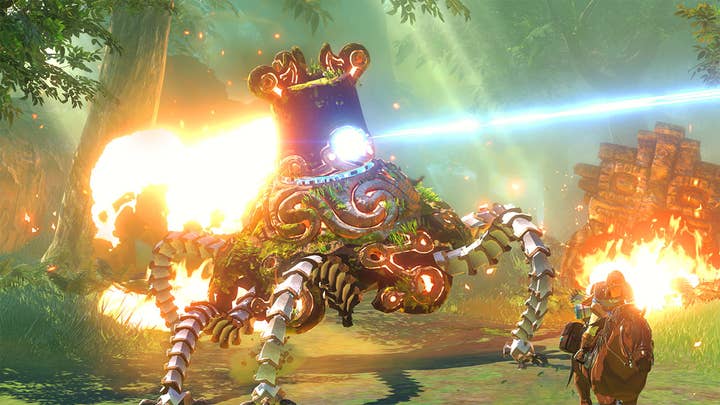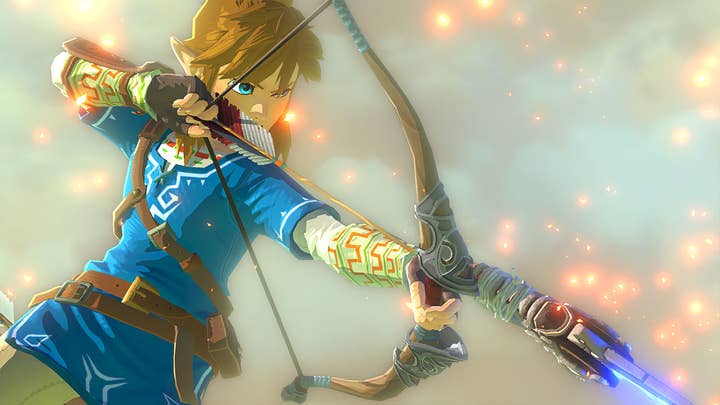Could a 2016 NX launch work to Nintendo's advantage?
Giving up on Wii U too early could alienate core fans - but if handled correctly, a 2016 launch could help to reverse Nintendo's home console fortunes
The rumour mill has been churning hard on Nintendo's as-yet-mysterious NX console this week, with the Wall Street Journal suggesting that some developers are already working on dev kits for a system that combines aspects of portable and home consoles, competes with Sony and Microsoft's devices on processing power and is destined for a 2016 launch. Let's say at the outset that developers having devkits now doesn't confirm a 2016 launch window; those are unrelated pieces of information, and the former is far more credible than the latter, since you'd rather expect Nintendo's close partners to be working with early hardware now even if the device was on a 2017 launch schedule. The WSJ's report, though, seems quite confident of the 2016 schedule, so let's run through a hypothetical of what that might mean, and how it might play out.
Firstly, this almost certainly means that the Wii U sees its last first-party games (and given the dearth of third-party support, probably its last games of any description, some budget stragglers aside) by late 2016. As it launched in late 2012, this will give the system a four-year lifespan, during which it will have, most likely, achieved around 12 million unit sales; 15 million may be possible if it's discounted and receives a late wave of support this Christmas or next year, but either way, Wii U will go down in history as Nintendo's worst-selling home console.
"Nintendo must now be looking at some of those games and thinking how much better they'd be - commercially and perhaps even creatively - as NX launch titles. The Zelda game, in particular, feels like a shoo-in for the NX"
Four years may seem like a very short lifespan for a console, and a few commentators are already lamenting this scenario on that basis - but it's hardly unheard of. The original Xbox, for example, lasted almost exactly four years before the Xbox 360 replaced it, and five years was considered average for a console generation until recently; our expectations for console life, I suspect, have been boosted by the unusually long durations of the PS3 and, especially, the Xbox 360, which stayed on the market for seven and eight years respectively before being supplanted by their successors. Four years isn't great by any measure, but it's not without precedent and the blow, such as it is, should be cushioned by the quality of the software library the system has built up in that time.
Three years, on the other hand, is really quite a dramatically short lifespan, and when people think of NX launching in 2016, I suspect that many of them are assuming that this means the Wii U is finished now, not in a year's time. They may be correct, and this is the first area where we have to start thinking about the options facing Nintendo as it decides its strategy. As it stands, 2016 is actually set to have a number of big titles for the Wii U - the new, open-world style Zelda game, the new StarFox game, the international release of Shin Megami Tensei X Fire Emblem (which the fans will love, though I don't see it reaching a very wide audience) and, according to comments Shigeru Miyamoto made last month, a new Pikmin title as well. Assuming a schedule padded out somewhat with a few more minor titles, that's not an unreasonable swan song for a console on its last legs.
On the other hand, Nintendo must now be looking at some of those games and thinking how much better they'd be - commercially and perhaps even creatively - as NX launch titles. The Zelda game, in particular, feels like a shoo-in for the NX; putting that on the system at launch, alongside whatever other big franchises are planned, would be a major statement of intent and a big boost for early sales. StarFox and Pikmin couldn't hurt, either. Yet the balancing act is tough; Wii U owners are primarily Nintendo's core customers, and launching your new console by giving your best customers a slap in the face (real or imagined) isn't a good strategy.
It seems most likely that Nintendo will try to replicate what it did with Legend of Zelda: Twilight Princess, which launched simultaneously on the hoary GameCube and the brand new Wii. This turned out to be a pretty solid strategy, though undoubtedly expensive in development terms, as it placated owners of the old console while simultaneously pushing them towards a Wii purchase (because who wants to play the game you've been waiting for for years on anything other than the system it looks and plays best on?). Whether StarFox or Pikmin receive the same treatment is another question entirely; StarFox has been demonstrated on the Wii U and moving it to NX entirely would probably be deeply unpopular, while Pikmin, as yet unannounced barring Miyamoto's comments, could turn up on either system.

Granting the benefit of the doubt, let's assume that Nintendo manages to drag the moribund Wii U across the last stretch to its final resting place without too many pratfalls - leaving consumers if not satisfied, then at least not angry, with how the final year of the console has been handled. It's worth noting, in this regard, that the most scathing criticism of the Wii U often seems to come from people who don't own the console - a fairly common feature of "console war" foolishness, but one we shouldn't forget when considering how satisfied a console's consumers are, or how likely they are to be angered by decisions the platform holder makes.
I don't think abandoning the Wii U and moving its final swan songs to the NX will play well for Nintendo, but equally I think a lot of Wii U owners won't be terribly angry over such decisions, and are reasonably satisfied with the experiences they've had from the console thus far. Those aren't laurels Nintendo should feel comfortable resting on, but it's not the pit of fire and hatred Internet comments about the console would make you believe, either (and the same goes for Xbox One, while we're at it).
Where, then, would that leave the NX? Even assuming those core, loyal Nintendo consumers are still on board, what kind of world would it be launching into in late 2016? PlayStation 4 and Xbox One will both be three years old, and will likely have topped 50 million sales between them. They'll both have had price cuts along the way, probably dropping them well below the $300 mark, and will be anticipating huge sales at Christmas 2016 driven by competitive prices, mature software line-ups and market momentum.
"If what Nintendo does with NX is genuinely interesting and well-received, they may find the mid-cycle market far, far more receptive than the aggressively competitive market they encountered by launching Wii U up against its present rivals"
Into this fray comes Nintendo, with a console that'll presumably be reasonably expensive (if the WSJ is on point regarding the system's power), but will be very different to the other consoles on the market. There's one way of looking at this which says that Nintendo is setting itself up for another failure; they'll be competing with mature, relatively inexpensive platforms with enormous libraries of software (including, crucially, older, cheaper software) and fantastic consumer recognition. There is, however, a positive interpretation of the scenario which I believe to be more realistic. Sure, Nintendo's not going to win any battles in the mind of a consumer planning his first console purchase of the generation; he or she is going to buy one of the established, "conventional" systems, most likely a PS4 if the current trend continues. That's no different from the scenario today, in which Nintendo is already losing those arguments among consumers - and has been doing so since the outset of the generation. People buying into a current-gen system buy Sony or Microsoft, mostly Sony.
What will be different in 2016, though, is that 50 million consumers will already have a Sony or Microsoft system under their TV - in many cases, a system that's now been there for three years. Those people, whose next "main" console upgrade is still several years off, may well be swayed by the prospect of an interesting, different take on game hardware and software as a second console in the mid-cycle of the generation. A Nintendo console couldn't hold a candle to a PS4 when it came down to a head-to-head decision over which to buy in the past two years; but that's not the same decision as will be made by people who have already had a PS4 for a few years. If what Nintendo does with NX is genuinely interesting and well-received, they may find the mid-cycle market far, far more receptive than the aggressively competitive market they encountered by launching Wii U up against its present rivals.
Much of how this plays out will depend heavily on Nintendo's execution. Keeping the Wii U core fans happy next year will be tough but likely worthwhile in terms of goodwill going into the NX launch, while ensuring that the NX (including its software and its marketing) has the requisite appeal to people as a second console, not just as a sole home console device, is an interesting balancing act. Too much focus on functionality already present in PS4 and Xbox One will turn off those who might be tempted to buy it as a second device; too little of that basic functionality and it will lose the chance of adoption in homes still lacking a present-gen device. Crucially, though, this is the kind of thing Nintendo is good at - delivering experiences and concepts which are genuinely different and unusual compared to what's being done by its rivals. That didn't help Wii U all that much, but at a different point in the business cycle it could give the company a vital edge.
All of this, of course, is hypothetical; while whispers around the industry all but confirm the WSJ's line on devkits already being in the wild, everything else about NX remains gossip, including that 2016 launch date. If it is going to launch then, we'd expect to see an announcement early next spring, with units playable at E3 - so the wait for information won't be terribly long. We'll soon know for sure whether Nintendo really intends to move its schedule "off-cycle", and what its proposition to a market already full of its rivals' hardware will be.

